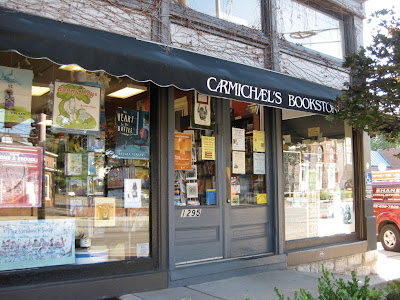Keep it in the neighbourhood: The benefits of buying local
Many of us generally, if not obsessively, like to shop at local independent places if we can. Often we can’t, or convenience (or price) dictates we go elsewhere. We may simply not care.
However, a study in the US has actually quantified the economic benefits to a neighbourhood of giving your trade to the locals rather than the chains. The principle may not be too surprising, but the data is definitely interesting.
A group called Civic Economics has been crunching the numbers for 10 US towns and cities over a decade. These are generally significantly larger urban areas than West Hampstead mind you. Nevertheless, the findings are always more or less the same: money spent at independent outlets is more likely to stay local than that spent at a chain.
In Louisville, Kentucky, researchers found independent stores recirculate 55.2% of revenues compared to 13.6% for big retailers. In other words they put four times as much back into the local area, relatively speaking. This is not the same as saying they recirculate four times the amount of money, but it does imply that the more consumers choose to shop local, the greater the benefit for the local economy. Studying restaurants revealed similar, though less dramatic, findings. In Louisville, independent restaurants put just over twice as much of their revenue back into the local economy as the chains. I note from Wikipedia that Louisville is the headquarters of both Papa John’s and the world’s largest fast food company by units, Yum! Brands, which owns KFC, Pizza Hut and Taco Bell!
 |
| Louisville’s answer to West End Lane Books |
(Louisville’s Independent Business Alliance (a co-sponsor of the study) cites a bunch of reasons for spending local. Number one is “To keep it weird”, and the organisation’s website is in fact keeplouisvilleweird.com)
Across the 10 cities studied, spending at local businesses generated on average 3.7 times more local economic benefit than spending at chains. Naturally, money staying in the local economy fuels that economy.
“The extra dollars in the local economy produce more jobs for residents, extra tax revenues for local governments, more investment in commercial and residential districts, and enhanced support for local nonprofits. In short, these businesses create better places.” Louisville study
The study is not without holes – it’s sponsored by the American Booksellers Association, which has an agenda to promote local retailers. It doesn’t look at very many chain operators (Barnes & Noble, Target, Home Depot and Office Max are the only four), and it’s the same ones in each city. Nor does it look at the price differential between chains and independents. Nevertheless, it’s an interesting guide to the value of shopping local.
Perhaps the best stat to come out of the Louisville study is that a market shift of just 10% from chains to independents would, based on these numbers in this city, generate an additional $416 million for the local economy off total retail sales of $10 billion. Whether that’s enough to get Papa John’s and Pizza Hut employees to buy independent pizza anytime soon remains to be seen!

